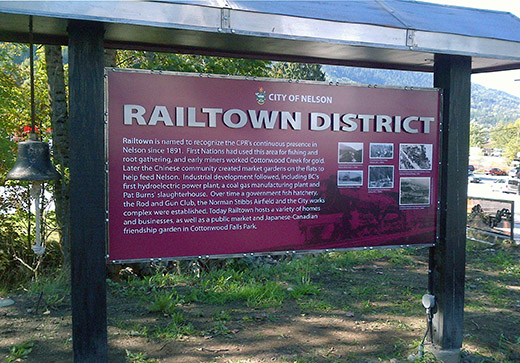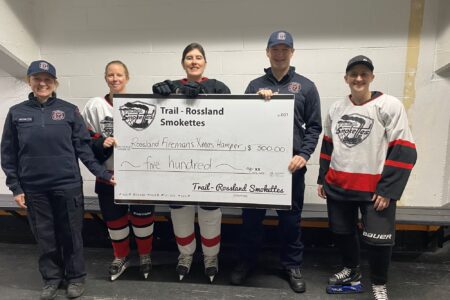Local freelance workers come together in search for shared co-working space
A movement is afoot in Nelson to find a shared workspace to connect the Queen City’s growing ranks of freelance workers and entrepreneurs, most of whom work from home in the areas of technology, design and other creative arts.
A Facebook group called Nelson Tech and Knowledge Workers sprung up on the web in May and invited local independent workers to attend a meeting aimed at creating connections and discussing opportunities for creating growth in this burgeoning new sector of the local economy.
Roughly 30 people came out to the first meeting in mid-May, and even more attended the second meeting on June 16 – both of which were held at the Gyre co-working space and sponsored by the Kootenay Association for Science and Technology (KAST).
Rose Hoeher, business-coaching coordinator for KAST, was one of the people who helped organize the event, along with Bradley Higham CEO of Collabo, a Nelson-based internet marketing company.
“I felt there were a lot of tech people working here that I was meeting through my job,” Hoeher says. “We wanted to bring everybody together.”
“Being relatively new to the Nelson area, I originally just wanted to find out who was out there working in tech-related fields, with the purpose of finding talented individuals I could hire to collaborate with,” Higham adds.
“What I found was that there were a lot of web developers, graphic designers, photographers, etc., who were working separately like a bunch of “lone rangers.”
“I was hoping that by getting everyone together, we could create a stronger talent pool and collectively tackle larger projects.”
One of the key themes that came out of the original meeting was the need for a shared workspace, where local freelancers can connect, share ideas and collaborate on projects.
“The general consensus of the group was that although they enjoy working as freelancers, they often miss the [camaraderie they] get in a social office setting,” Higham notes.
“Shared office spaces have been successful in other cities because freelancers can have an office outside their house at an affordable rate and also get a chance to interact or bounce ideas off other workers in a similar field.”
“Co-work spaces are hugely important, because they not only allow people to be less solitary, they also allow access to things like meeting rooms and high-speed internet,” adds local writer and social media consultant, John Paolozzi, who helped promote the meeting. “They allow people to network, mentor, and even collaborate on projects.”
When co-working spaces also offer guidance to businesses, workshops, speakers and even capital investment, they’re often called accelerators or incubators because they can help grow businesses and take them to the next level.
Seeking a successful space
Hoeher, who has taken on finding a space as a personal project, says she’s seen many examples of how well these spaces can function when it comes to developing small business ventures.
“I have a personal interest in seeing this happen as a result of the people I meet on a daily basis,” she says. “ I see a need for it, and I’ve seen other accelerators and incubators that work.”
Hoeher was happy to learn there are so many local freelancers out there who have in interest in seeing a co-working or “maker-space” happen in Nelson.
And with the Gyre space soon out of the picture, as UBC’s West Kootenay Teacher Education Program (WKTEP) moves in, Hoeher has stepped up her efforts to help find or create the right kind of space.
She has done some research into other models and uncovered some common characteristics for successful co-working or accelerator models.
Those include: fees or roughly $20 to $50, or even free; and having programs such as mentorships and workshops associated with the space.
“Those tend to be successful, but the need a private funder,” Hoeher notes, adding that ideally such a space would be provided to the group for free – and even potentially have some funding available for a part-time project manager to oversee it.
She has been meeting with local organizations like the Nelson and District Chamber of Commerce, the City of Nelson, and Community Futures to investigate possibilities.
One possible location that has been discussed is the currently vacant third floor of the White Building that houses City Hall and government offices.
Another possibility was space in the new chamber of commerce building that’s currently nearing completion, but the model needed to make the space viable won’t work for the chamber.
Chamber of commerce supports co-working venture
Tom Thomson, executive director of the Nelson and District Chamber of Commerce, says a co-working space such as the one being proposed would be a great step towards achieving one of the key goals of the Nelson and Area Economic Development Partnership (NAEDP).
“We want to try and grow the technology sector, and a co-working location is a great opportunity,” Thompson says.
“There’s no question it’s something we should strive towards and make happen.”
In terms of housing such a facility at the new NDCoC building on Rail Street, he says due to the model required it wouldn’t be financially feasible.
“From our perspective, we’re financing a portion of that building personally,” he explains. “So in order to pay back any kind of mortgage, we have to generate income from that space.”
Thompson says the NDCoC directors recently had a brief discussion about whether they would be willing to take on running a co-working space, in the face of Gyre shutting down.
“The directors felt it wouldn’t be financially viable. I’m not saying we couldn’t continue to work with these guys, but I don’t think many landlords in town would be willing to just give you the space for free.”
He added that the chamber agreed to keep rents for its space at standard commercial rates, in an effort not to undercut other local businesses.
That being said, Thomson reiterated that he would love to see the new Railtown District turned into a tech hub.
“If that turned into a little Silicon Valley, that would be spectacular,” he says. “That’s the sort of thing you’d love to be able to see happen.”
He adds that partnerships with larger bodies like provincial and federal government, as well as organizations like KAST, Columbia Basin Trust and others will be key to making it happen.
























